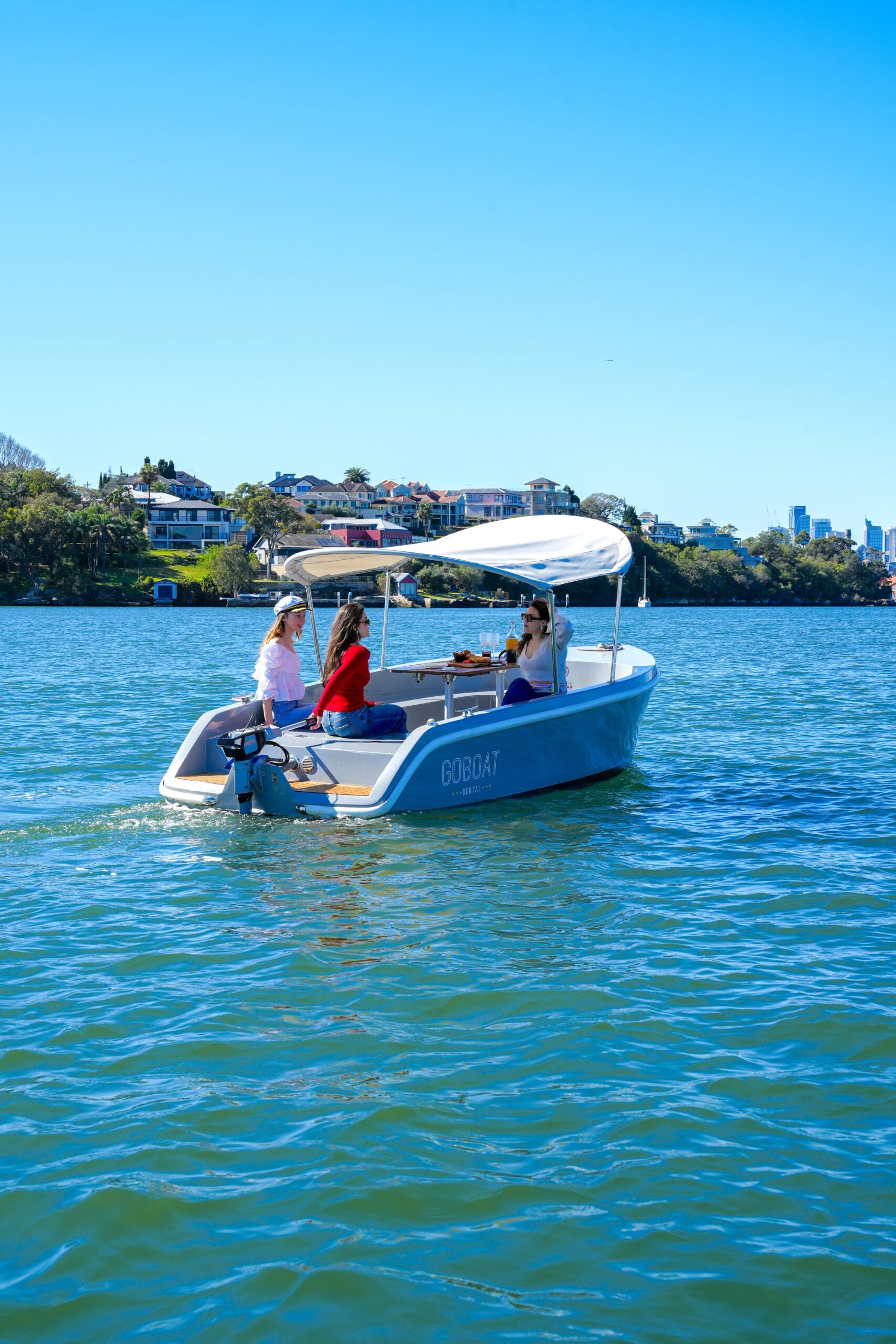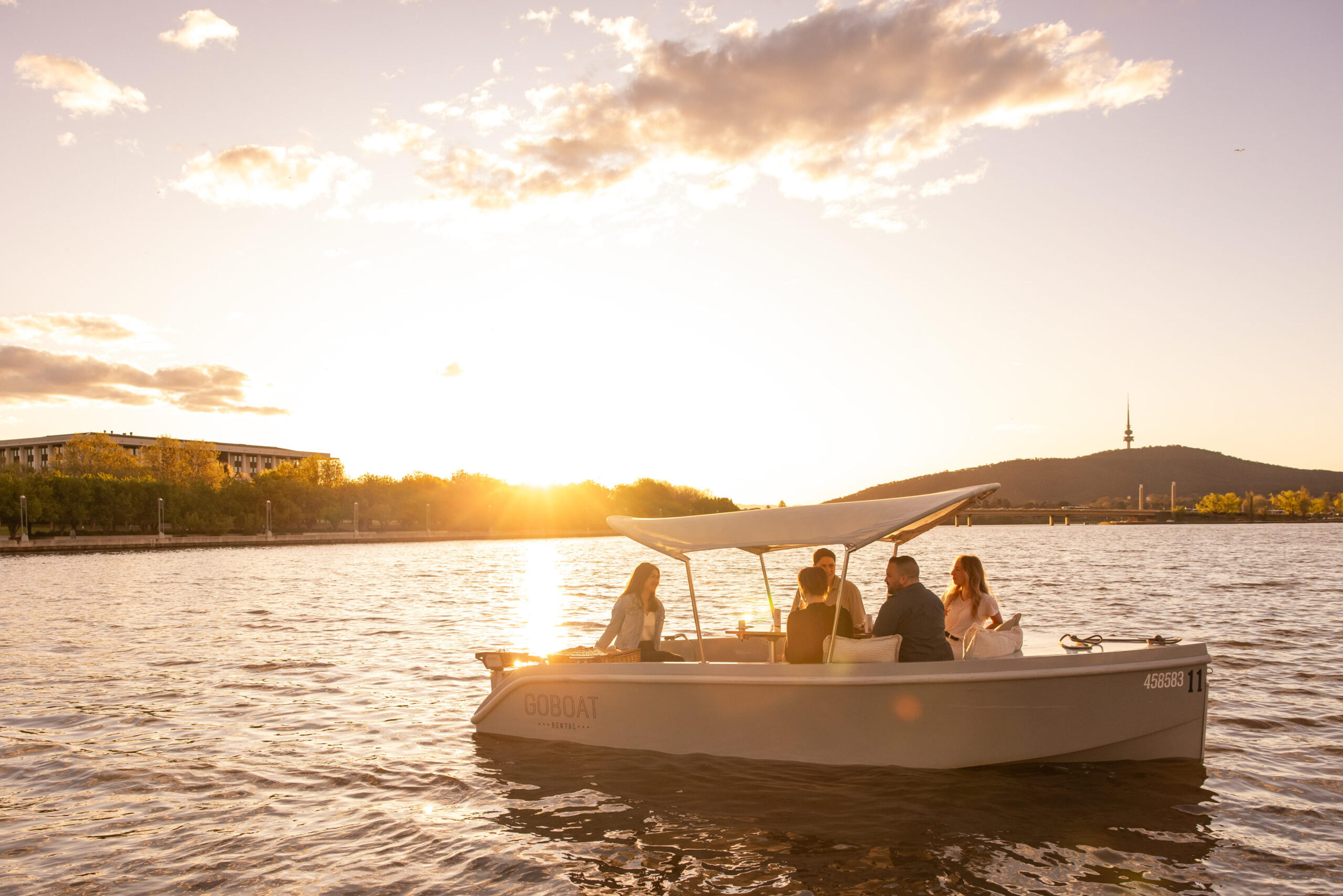Australia's favourite electric picnic boats.
Be your own captain. No boat licence required!



1/6

2/6

3/6

4/6

5/6

6/6
Perfect for picnics
No boat licence required
Fit up to 8 people
Shade available*
Pet friendly
Safety assured
*Shade included at all locations except GoBoat Melbourne. GoBoat Melbourne does not have shade available due to bridges.

Gift the experience
Gift cards from GoBoat are the perfect experience gift - ideal for those 'hard to buy for' people... you know the ones. Valid for 3 years and delivered straight to your inbox, just choose your location and value, and watch the smile on their face!
Find a GoBoat near you



Looking for a bit of luxury?
The GoBoat+ is your upgrade for extra comfort and style, with cushioned seating, centre-console steering, and a little more power on the water. Simply select GoBoat+ in the Extras section when booking.
On the Gold Coast, your GoBoat+ upgrade also includes a Bluetooth speaker and esky hire! All for just $139.
Please note: Choose your standard hire duration first, then add GoBoat+ in Extras. Subject to location availability.
Currently available in:
- Gold Coast
As featured on





Our custom picnic boats are designed in Europe, made in Australia, and powered by state-of-the-art electric motors for an environmentally responsible experience.


Live Interactive Map
See your live location with GPS tracking onboard.
Explore points of interest along your route.
See shallow waters and restricted areas marked for your safety.
*BYO compatible device (e.g. smartphone or tablet). Internet connection is required.
Benefits of boating
Marine biologist and author of Blue Mind, Dr Wallace J. Nichols, says:
“Boating resets our brain, induces creativity, appeals to our senses, and releases stress-reducing hormones.”

What's new with GoBoat?











